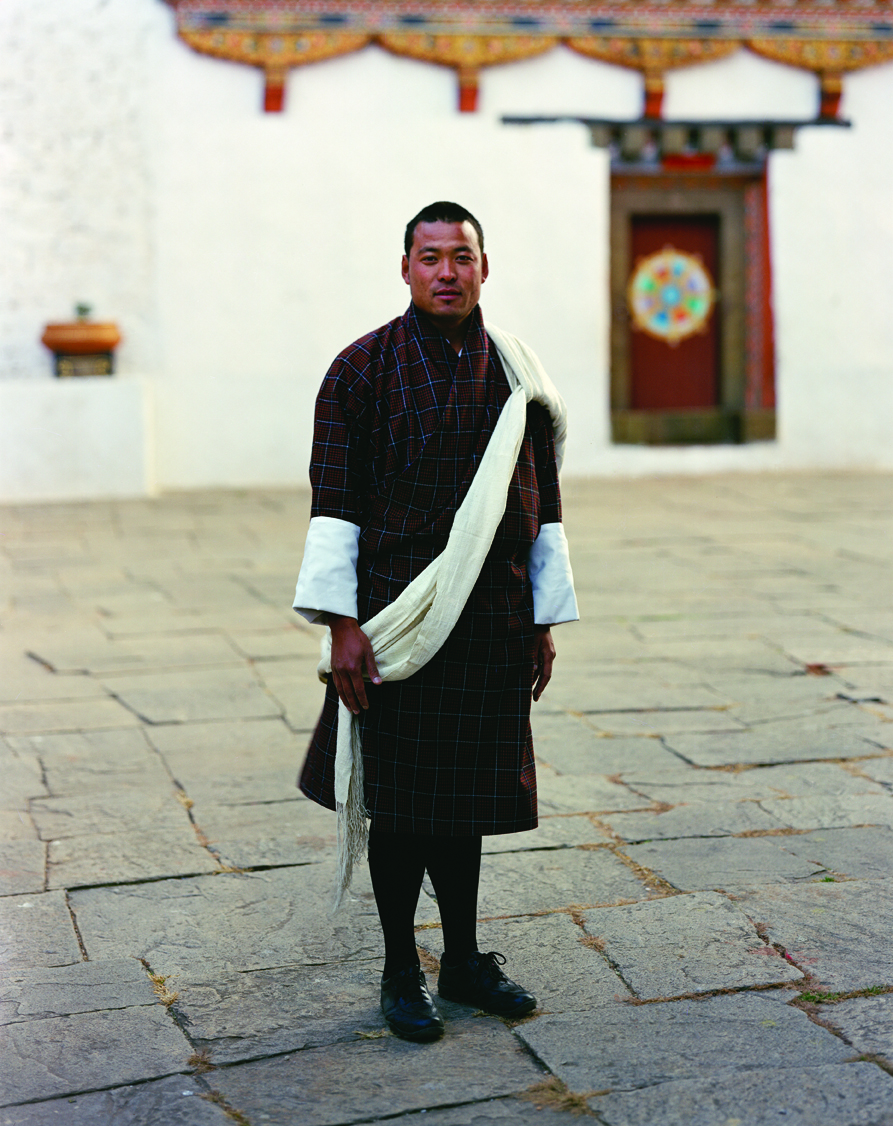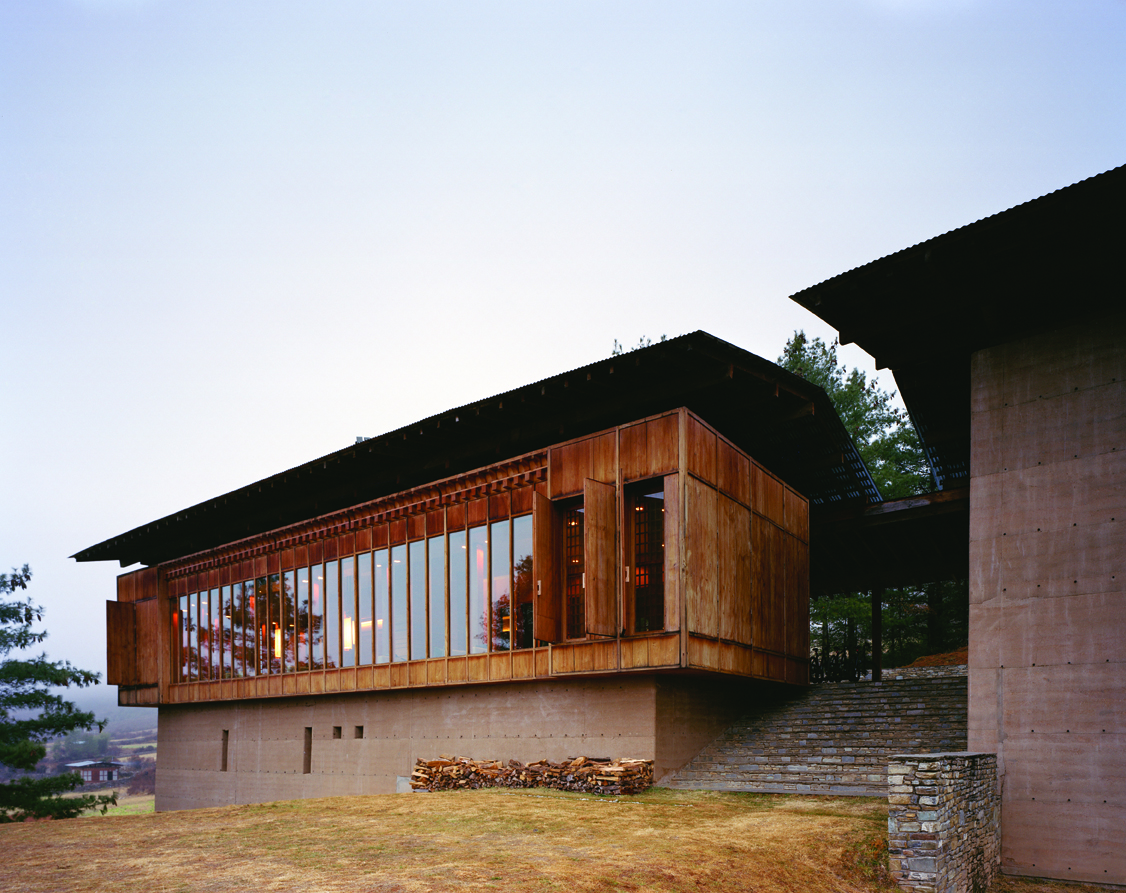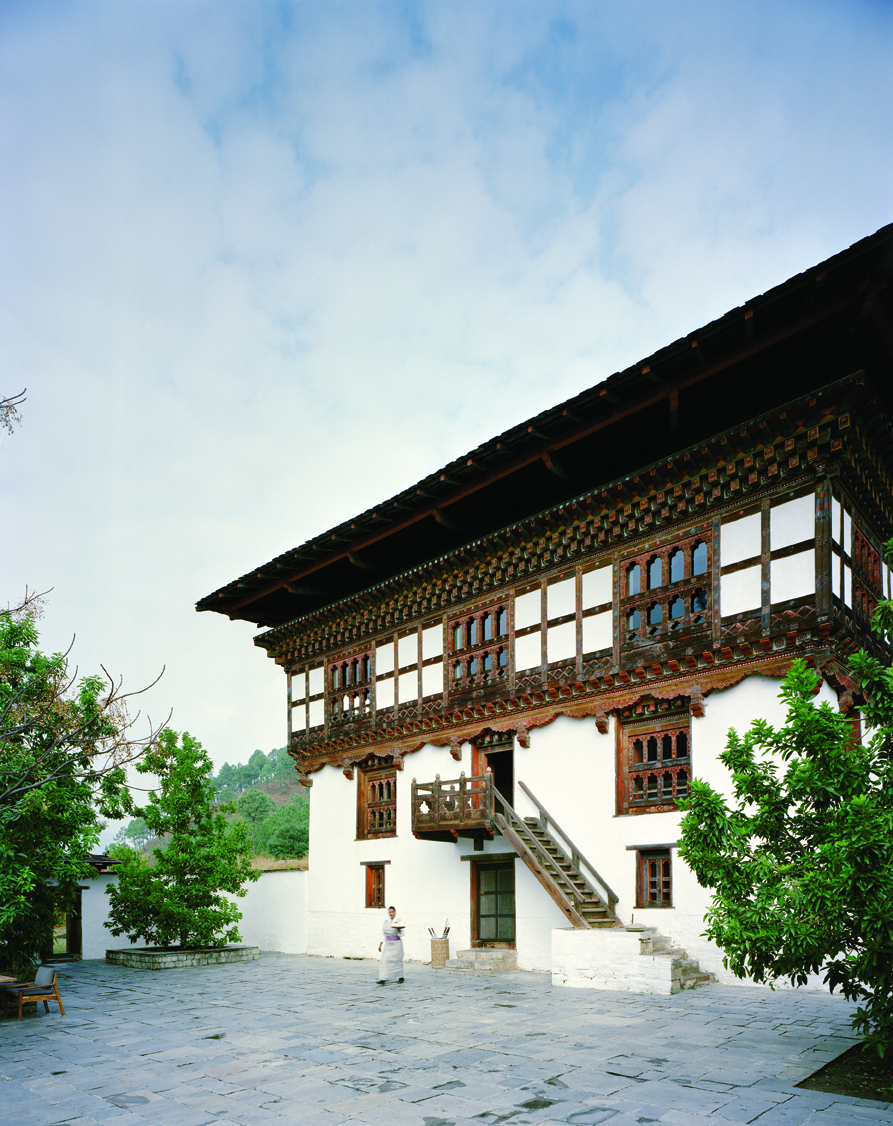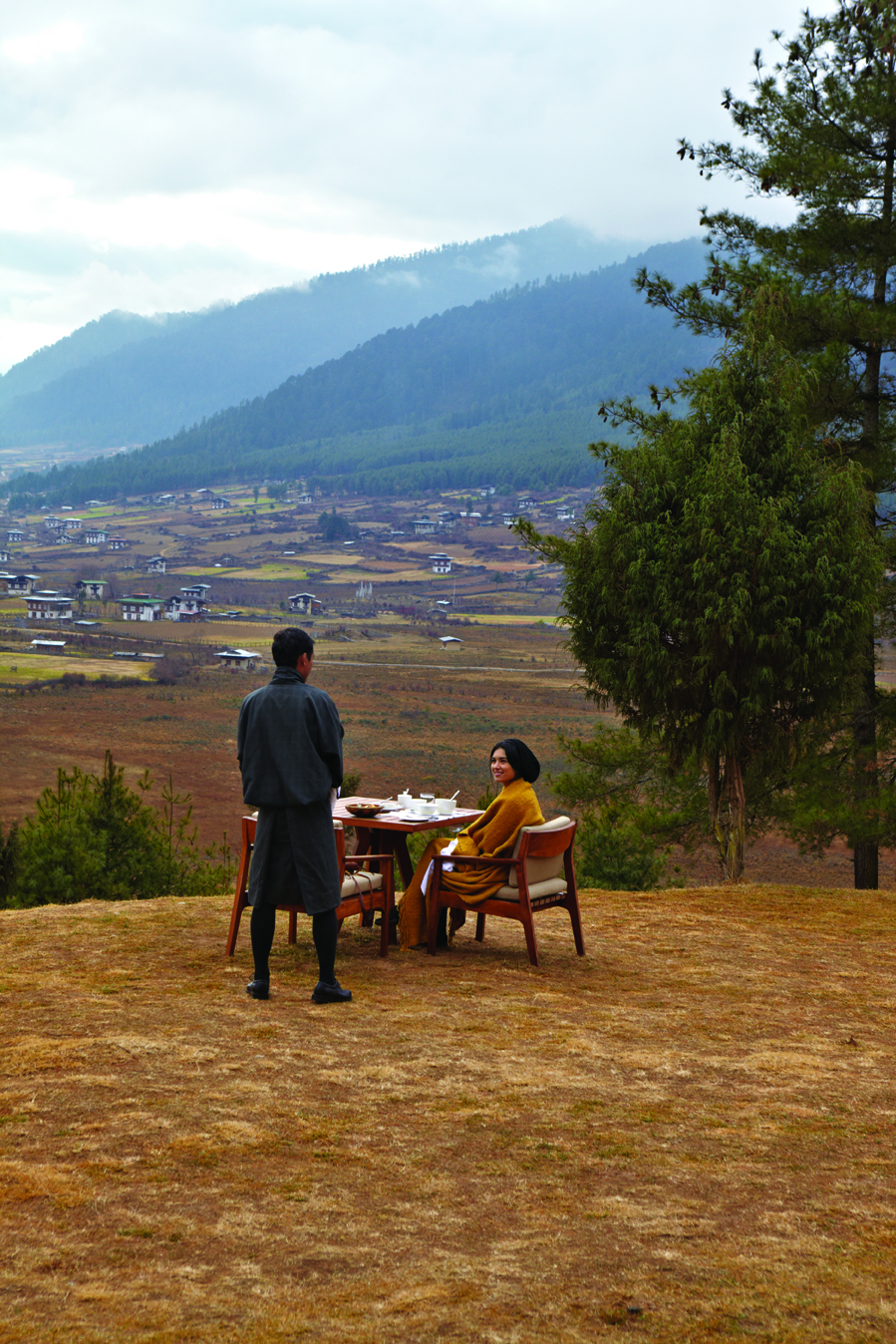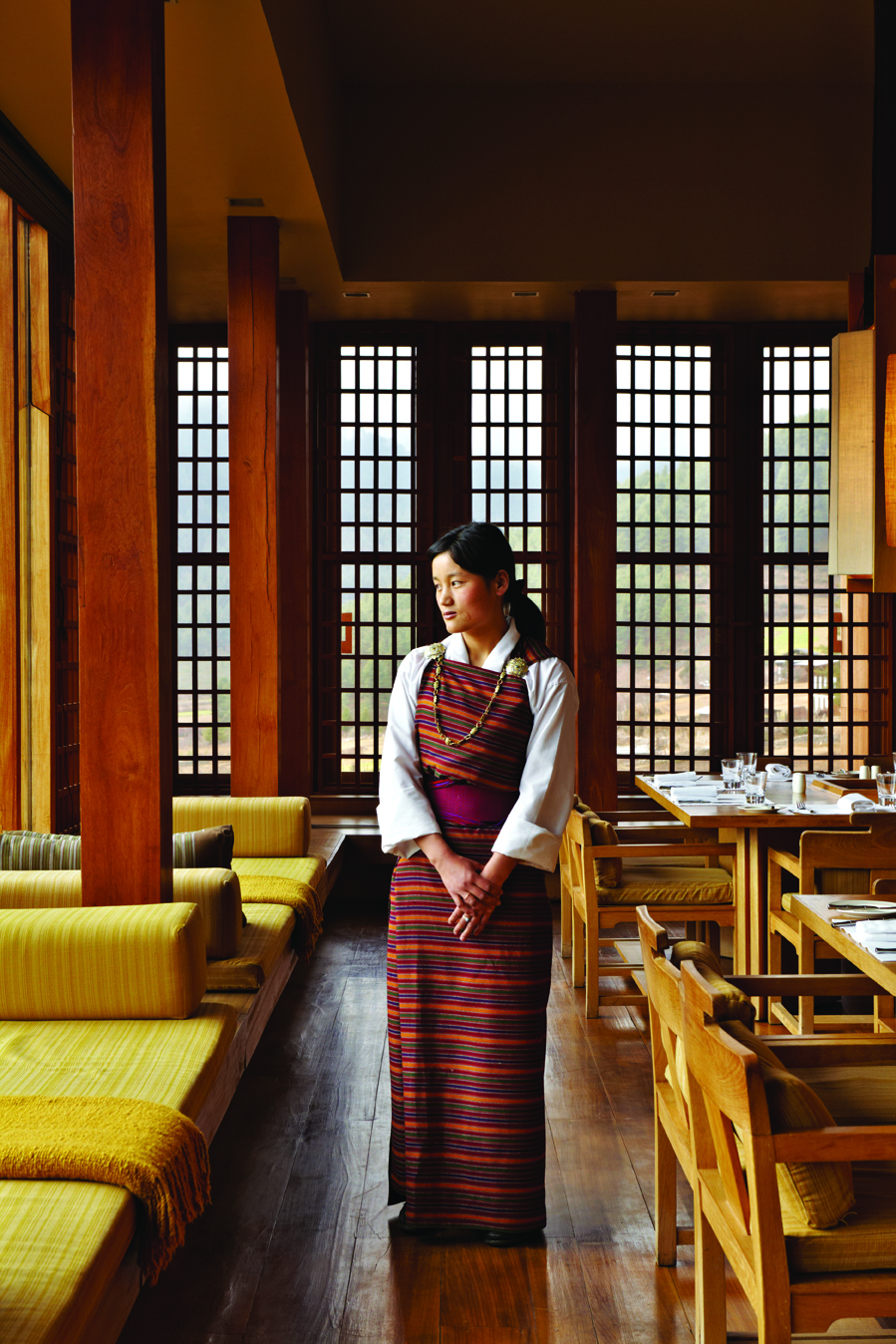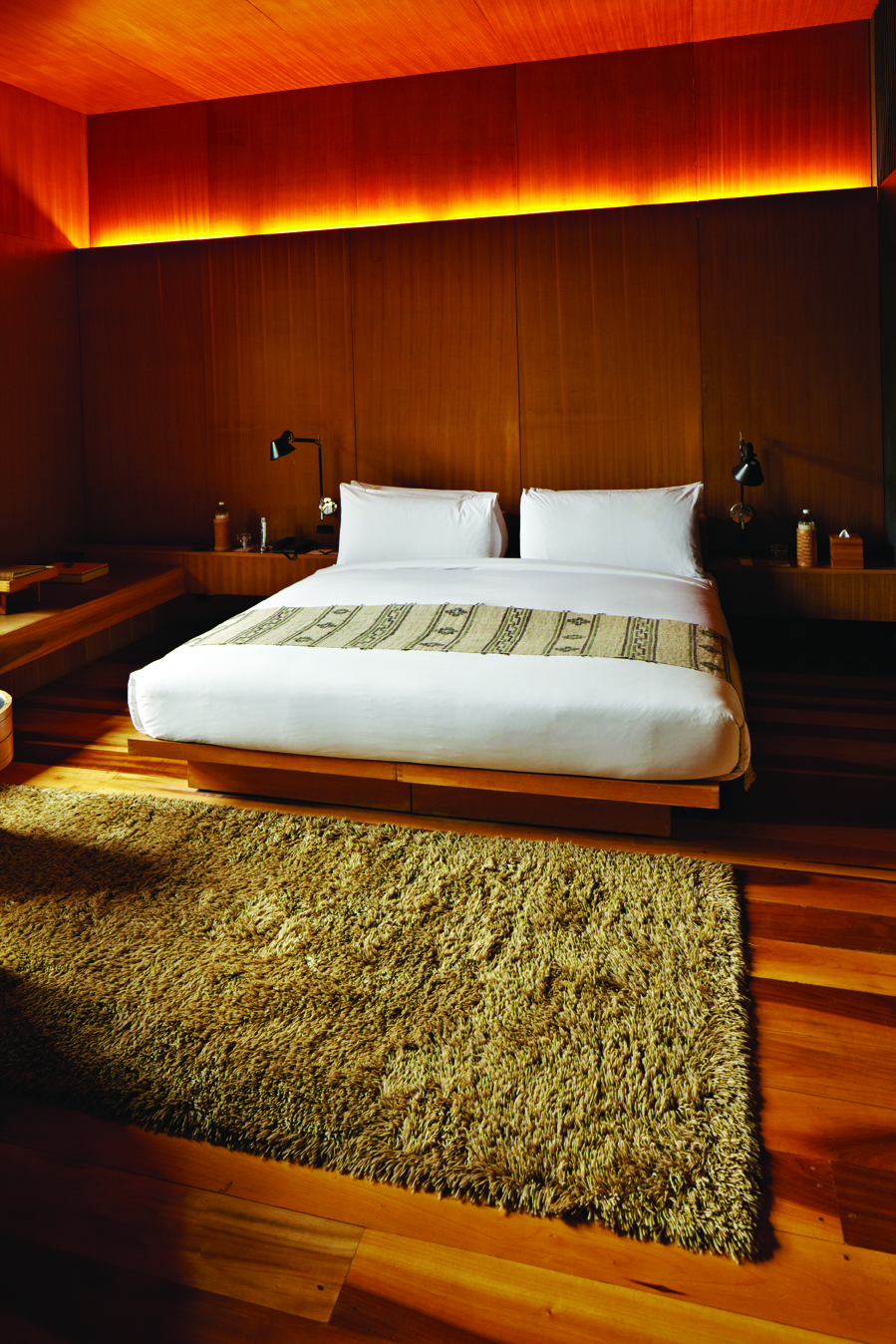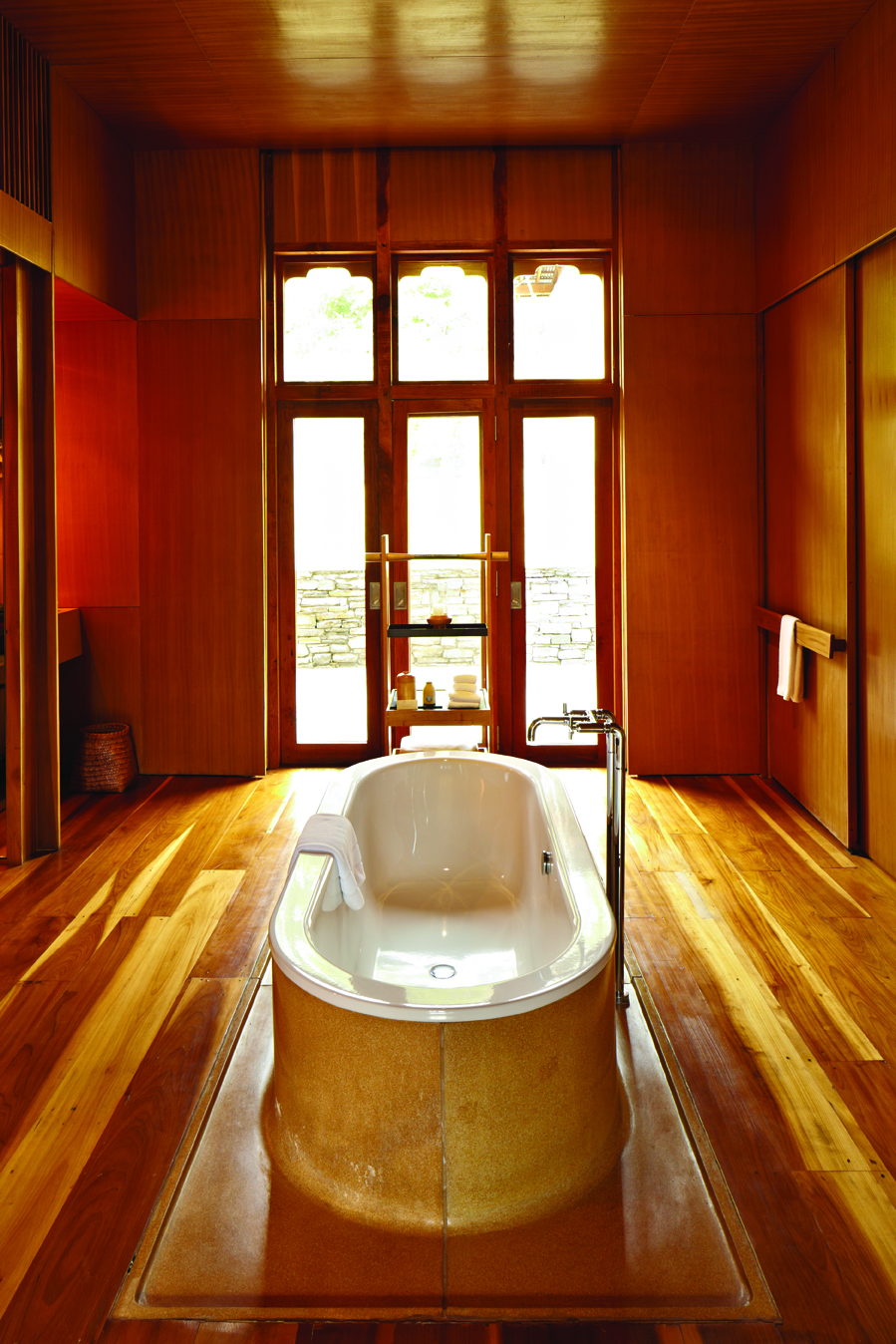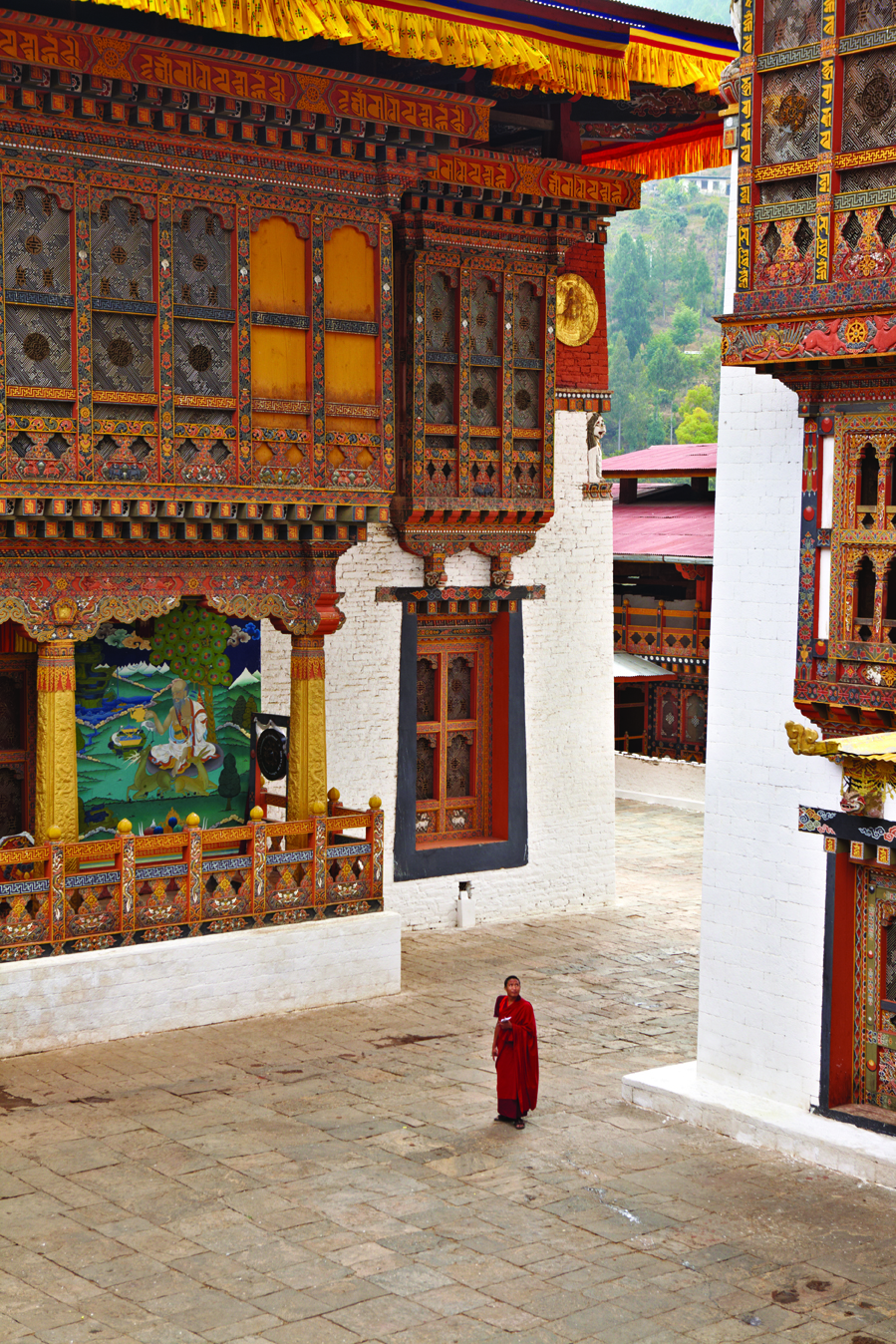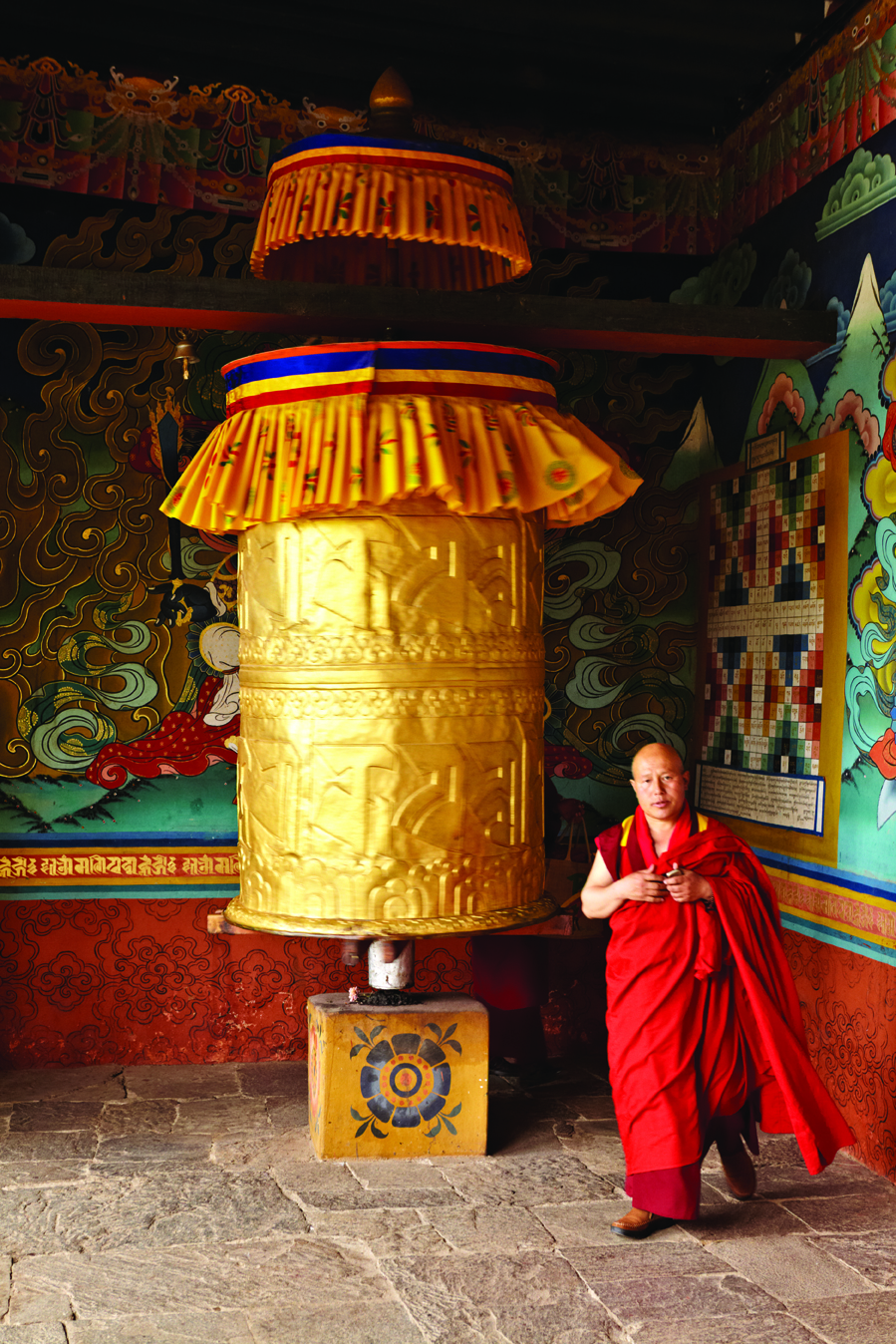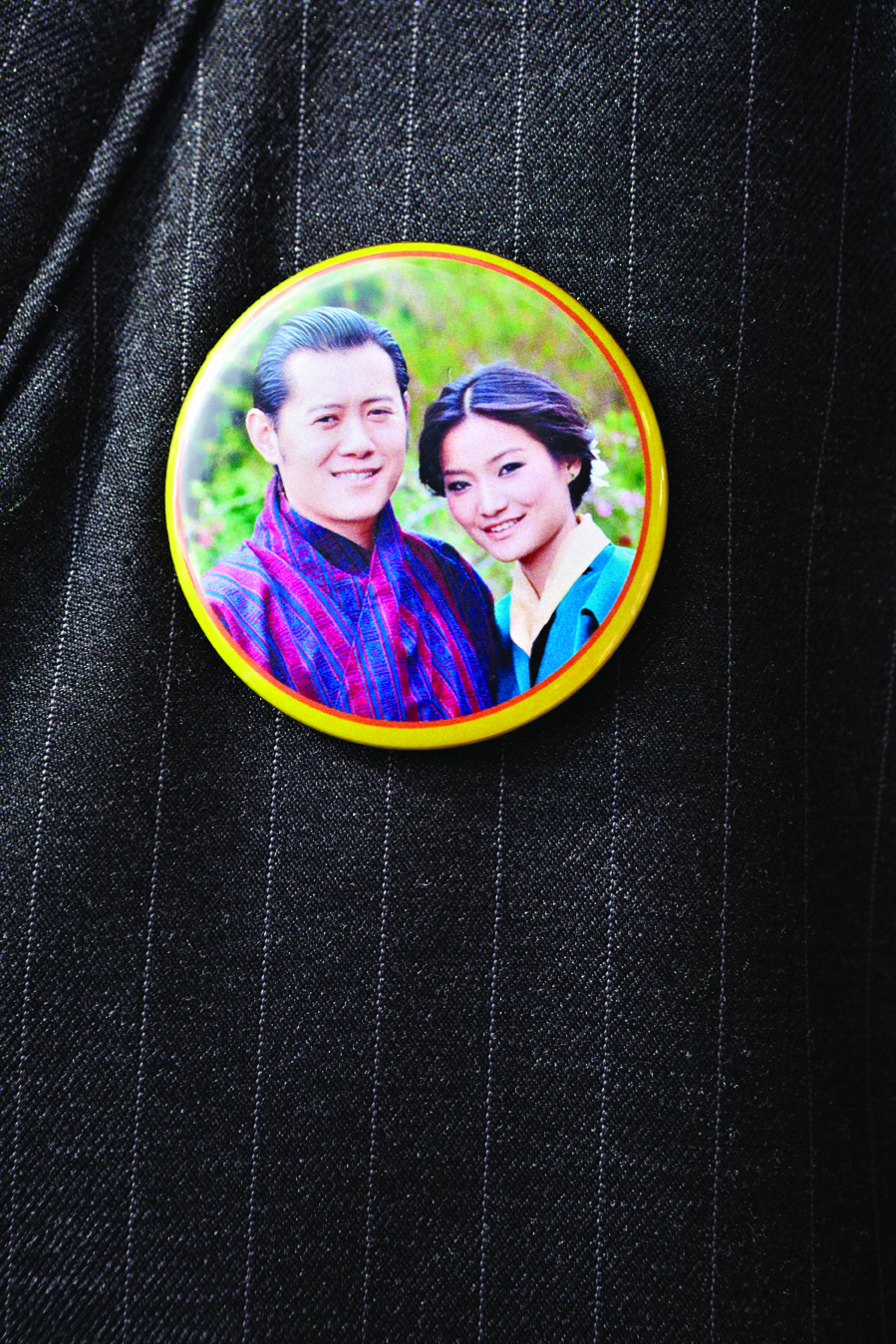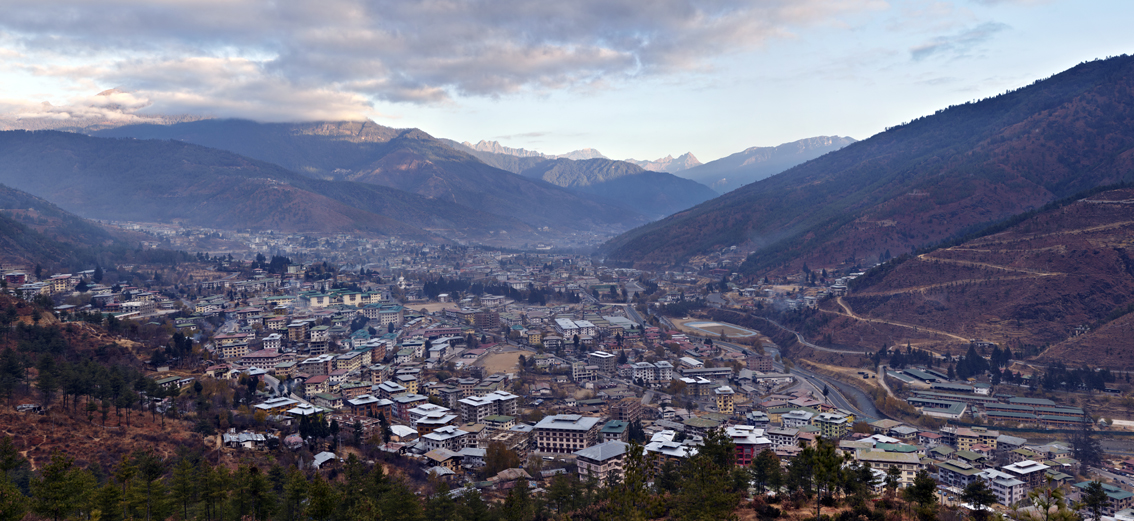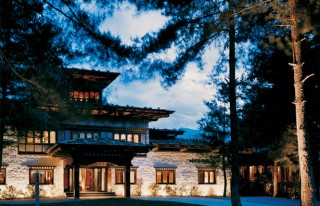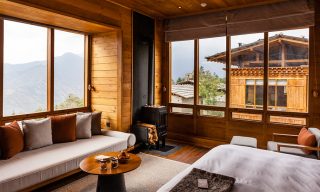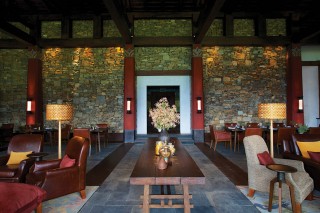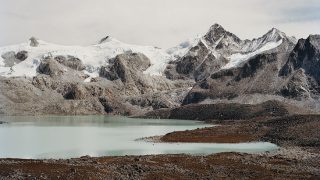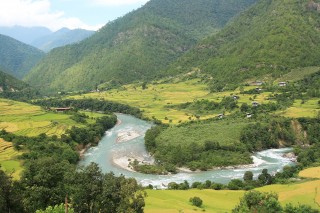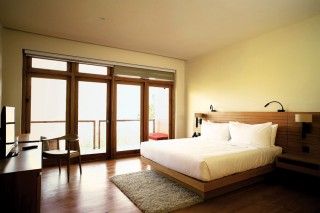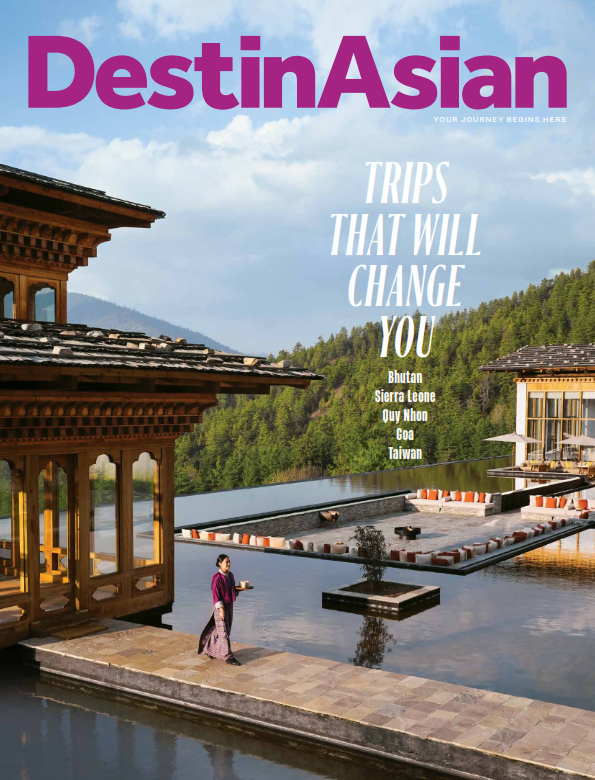Bhutan is also populated by a generally self-assured, good-natured, and handsome people, epitomized perhaps by their 33-year-old Oxford-educated monarch, King Jigme Khesar Namgyel Wangchuck, and his beautiful young queen, Jetsun Pema. Portraits of the royal couple are as ubiquitous as prayer flags. Like his cautiously progressive father, Jigme Singye, who stunned the nation in 2005 with the announcement of his plans to abdicate and to transform Bhutan into a parliamentary democracy, King Khesar is a champion of people’s rights, and beloved for it. Often referred to as King Five (being the fifth in a line of hereditary rulers that stretches back a century), he is known for trekking to remote villages to visit his subjects, and for holding candid roadside audiences. He even has a Facebook page.
Bhutan’s other ace in the hole is its luxury lodgings. The first of these—Amanresorts’ Amankora and the Como group’s Uma Paro—opened in Paro in 2004, and have since established sister properties in the Punakha Valley, a five-hour drive to the northeast. India’s Taj group runs an elegant 66-room hotel in Thimpu. Only Aman, however, went so far as to build an entire circuit of boutique lodges, five in total, each set in a different valley, but all sharing the name Aman-kora. For those with time and money on their hands, the idea is to experience a chaperoned cross section of Bhutanese life by circulating among the lodges—kora means “pilgrimage” in Bhutan’s Dzongkha language. On day one of my trip, that means bunking on the forested slopes above the capital at Amankora Thimpu, where I have my first taste of yak meat (in a toothsome chili-laced sandwich dubbed the Yak Attack) and sleep soundly in a wood-paneled room equipped with a welcome bukhari stove and a hot-water bottle.
For the moment, however, we’re on our way to the distant Phobjikha Valley, which harbors an eight-suite Aman lodge set atop a piney knoll. Even discounting our pit stops—a leg-stretching break among the chortens at Dochula Pass; a picnic lunch beside a rushing river—it’s a long haul from Thimpu, made even longer by heavy roadwork on the final, insanely precipitous leg to Phobjikha. We drive over the crest of the valley in the dark, our headlights picking out the bulky silhouettes of yaks on the roadside. Finally, we pull up to the lodge, where a springy carpet of freshly arranged pine needles leads to a waiting dining room and a much-needed drink of whiskey. Perhaps I’m already succumbing to Bhutan’s gross national happiness, because it’s never felt better to arrive at a hotel.
If waking up at Amankora Gangtey elicits a certain déjà vu (my room, conveniently, is laid out exactly as it was in Thimpu, right down to the light fixtures and wall sockets), the feeling is instantly dispelled by a look out the window. Phobjikha Valley, 3,000 meters above sea level, is a broad tableau of wetlands and potato fields dotted by stout whitewashed farmhouses. On a ridge overlooking the lodge is the Gangtey Goemba, a 16th-century monastery that we tour after breakfast, following Sangay around the flagstone courtyard in a clockwise circumambulation of the goemba’s keep-like prayer hall. The valley’s main attraction, however, is its black-necked cranes, a few hundred of which fly in from Tibet each October to winter here. So after leaving the monastery, Sangay takes us through the adjacent village and down a trail bordered by blue pines and dwarf bamboo. We walk for about 40 minutes along the edge of the valley, spotting only one other person, an old woman balancing a stack of pine needles on her head (Sangay sheepishly explains that the needles are mixed with cow dung to make manure). Then we crouch down on a juniper-scented hummock to watch a flock of cranes from a respectful distance.
“The cranes are a gift,” says the lodge’s charming young assistant manager, Jigme Tanzin, as we dine that night on pork dumplings and pumpkin curry in a stone potato shed owned by an adjacent farm. “And because of them, this valley is protected, which is why you won’t see any telephone or power lines.” Lit only by dozens of flickering candles and heated by a portable bukhari stove, the shed —empty of potatoes at this time of year—is both eerie and magical, and strikes me as the ideal place for telling ghost
stories. Instead, Jigme talks about local customs, including a venerable but fast-fading courtship ritual known as “night hunting.” Accordingly, a young man will make arrangements with a girl for what is basically a consensual one-night stand, then sneak into her parents’ house that night to consummate the deal. If he leaves before the parents catch him, he is under no obligation to marry her.
“And if he does want to marry the girl?” I ask.
“He stays for breakfast.”

